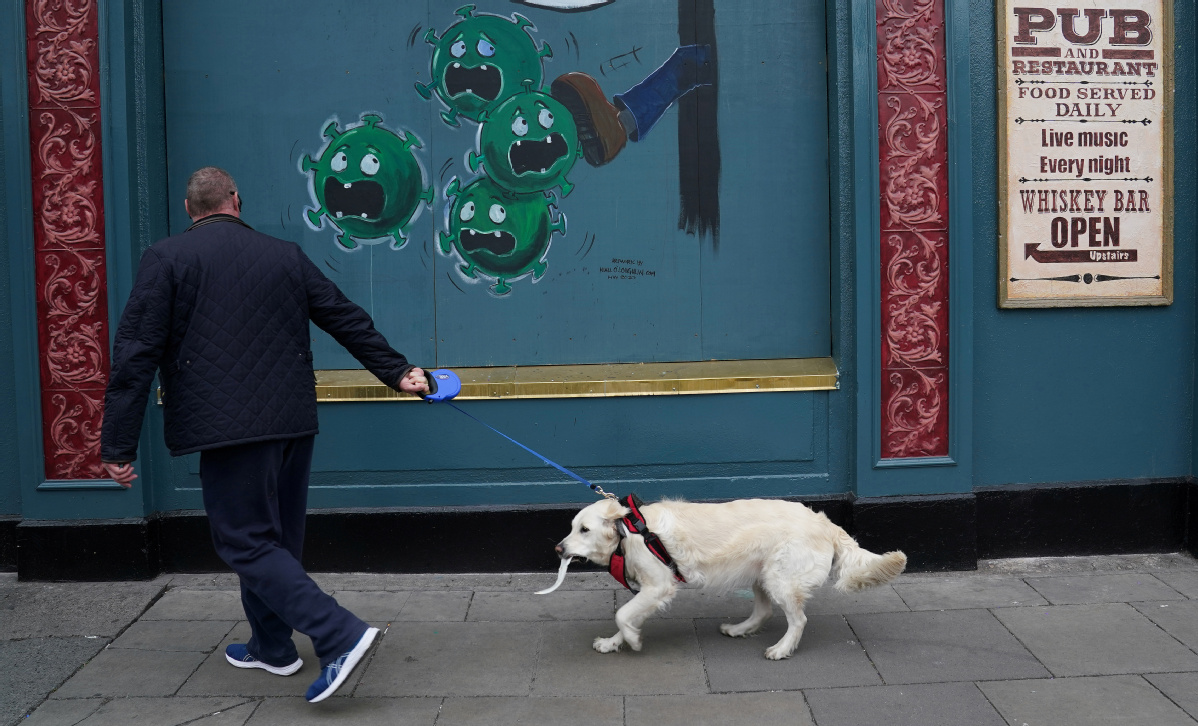Dogs hot on the trail of covid-19 cases


Man's best friend could soon join fight against pandemic
In a pristine, sunlit training room, Digby walked slowly and methodically around a strange circular contraption-a sort of metal carousel formed from a series of spokes with cups on the end.
The labradoodle, generally a sociable and playful companion, was on a mission.
There were eight cups to choose from, but only one would result in a treat and lavish praise from his trainer.
Digby sniffed one of the cups before moving on. Two more were investigated and abandoned-then success! With the target odor identified, he sat next to the cup and looked imploringly at his trainer, who rewarded him with a treat and by scratching the animal's head.
The dog is one of six involved in a COVID-19 detection training program at the headquarters of Medical Detection Dogs, or MDD, in Milton Keynes, southern England.
Armed with a similar amount of rigorous training as drug and explosives sniffer dogs, so-called bio-detection dogs are taught to detect volatile chemicals found in samples taken from clothing, skin swabs, urine or feces.
There is mounting evidence that these dogs can detect human ailments, including types of cancer, malaria and Parkinson's disease, with high levels of accuracy.
Digby and his canine colleagues are part of a project backed by the British government to see if the novel coronavirus infection has its own distinctive, detectable odor.
























